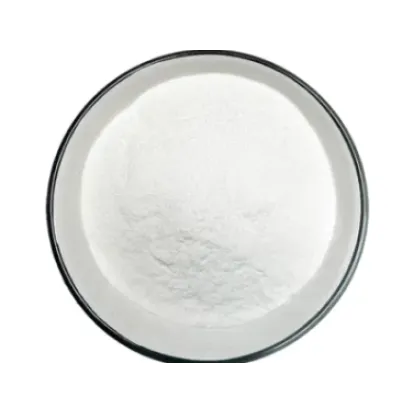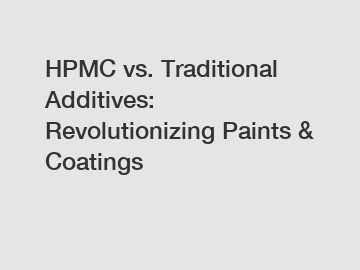FAQs | Everything You Need to Know About Inorganic Chemicals
Jul. 11, 2024
Inorganic chemicals are a cornerstone of various industries, from agriculture to manufacturing. This guide answers common questions to help you understand the importance and applications of inorganic chemicals.
What Are Inorganic Chemicals?
Inorganic chemicals are compounds that typically do not contain carbon-hydrogen bonds. They include a wide range of substances like metals, salts, acids, and bases. Unlike organic chemicals, which are mainly found in living organisms, inorganic chemicals are usually derived from minerals and other non-living sources.

How Are Inorganic Chemicals Classified?
Inorganic chemicals can be broadly classified into four main categories:
Salts: Compounds formed from the reaction of an acid and a base. Examples include sodium chloride (table salt) and calcium carbonate.
Oxides: Compounds that contain at least one oxygen atom and one other element. Common examples are carbon dioxide and iron oxide (rust).
Acids: Substances that release hydrogen ions (H⁺) when dissolved in water. Examples are sulfuric acid and hydrochloric acid.
Bases: Substances that release hydroxide ions (OH⁻) in water. Examples include sodium hydroxide and potassium hydroxide.
What Are the Common Uses of Inorganic Chemicals?
Inorganic chemicals have a vast array of applications across various industries:
Agriculture: Inorganic fertilizers like ammonium nitrate and phosphates help increase crop yields.
Manufacturing: Sulfuric acid is essential in producing fertilizers, dyes, and other chemicals. Sodium hydroxide is used in making paper and textiles.
Construction: Calcium carbonate is a primary ingredient in cement and lime, used in building materials.
Electronics: Silicon dioxide is crucial in manufacturing semiconductors and other electronic components.
Healthcare: Inorganic compounds like iodine and silver nitrate have medicinal uses, including antiseptics and disinfectants.
Are Inorganic Chemicals Safe to Use?
The safety of inorganic chemicals depends on their specific properties and how they are handled. Some inorganic chemicals, like table salt, are safe for everyday use, while others, such as sulfuric acid, are highly corrosive and require careful handling. It is crucial to follow safety guidelines and use appropriate protective equipment when working with potentially hazardous inorganic chemicals.
How Do Inorganic Chemicals Impact the Environment?
Inorganic chemicals can have significant environmental impacts, both positive and negative:
Featured content:THE IMPORTANCE OF WATER REDUCING AGENTS IN CONSTRUCTION
How Is Mono Ethylene Glycol Manufactured?
10 Questions You Should Know about Using Uracil White Powder in Your Research
Unlocking the Power of Aminosilane in Industry Applications
Unlocking the Benefits of Aminosilane in Applications
How Does Silane Fluid Enhance Performance?
How to Select the Right Silane Fluid?Positive Impacts: Inorganic fertilizers boost agricultural productivity, supporting food security. Water treatment chemicals like chlorine help provide safe drinking water.
Negative Impacts: Improper disposal of industrial waste containing inorganic chemicals can lead to soil and water contamination. Heavy metals like lead and mercury can accumulate in the environment, posing health risks to humans and wildlife.
What Are the Benefits of Using Inorganic Chemicals?
Inorganic chemicals offer several benefits:
Cost-Effective: Many inorganic chemicals are inexpensive to produce and use, making them economical for various applications.
Durability: Inorganic compounds are often more stable and durable than their organic counterparts, making them suitable for long-term use in construction and manufacturing.
Versatility: The wide range of inorganic chemicals allows for diverse applications across multiple industries, enhancing efficiency and productivity.
How Are Inorganic Chemicals Produced?
The production of inorganic chemicals typically involves extracting and processing minerals from the earth. For example:
Mining: Minerals are extracted from mines and then refined to obtain pure inorganic compounds.
Chemical Reactions: Many inorganic chemicals are produced through chemical reactions. For instance, sulfuric acid is made by oxidizing sulfur dioxide in the presence of a catalyst.
Electrolysis: This process is used to produce metals and other substances. For example, electrolysis of saltwater produces chlorine gas and sodium hydroxide.
What Is the Future of Inorganic Chemicals?
The future of inorganic chemicals lies in innovation and sustainability:
Green Chemistry: Developing environmentally friendly methods to produce and use inorganic chemicals, reducing their environmental footprint.
Advanced Materials: Research into new inorganic materials, like advanced ceramics and nanomaterials, promises to revolutionize industries from electronics to medicine.
Resource Efficiency: Improving the efficiency of resource extraction and chemical production to minimize waste and conserve natural resources.
Conclusion
Inorganic chemicals are integral to modern life, playing a crucial role in numerous industries and everyday products. Understanding their properties, uses, and impacts can help you make informed decisions about their applications in your business or personal life. By embracing sustainable practices, we can harness the benefits of inorganic chemicals while mitigating their environmental effects.
Unlocking Benefits of Hydroxy Silicone Oil Today
How to Select the Best Hydroxy Silicone Oil?
Unlocking the Benefits of MgO Powder in Silicon Steel Grades
Top Uses of Magnesium Oxide Powder Bulk in 2024
Unlocking Benefits of Light Magnesium Carbonate <0.15 g/ml
How Can Styrene Butadiene Rubber Latex Revolutionize Sustainability?
Transform Your Health with a Red Light Therapy Chamber For Home
287
0
0
None
None
Related Articles
-
108
0
0
-
102
0
0
-
117
0
0
-
116
0
0
-
115
0
0
-
What are silane coupling agents used for?
Silane coupling agents are used to enhance the adhesion between organic and inorganic materials.
104
0
0
-
81
0
0
-
90
0
0









Comments
All Comments (0)